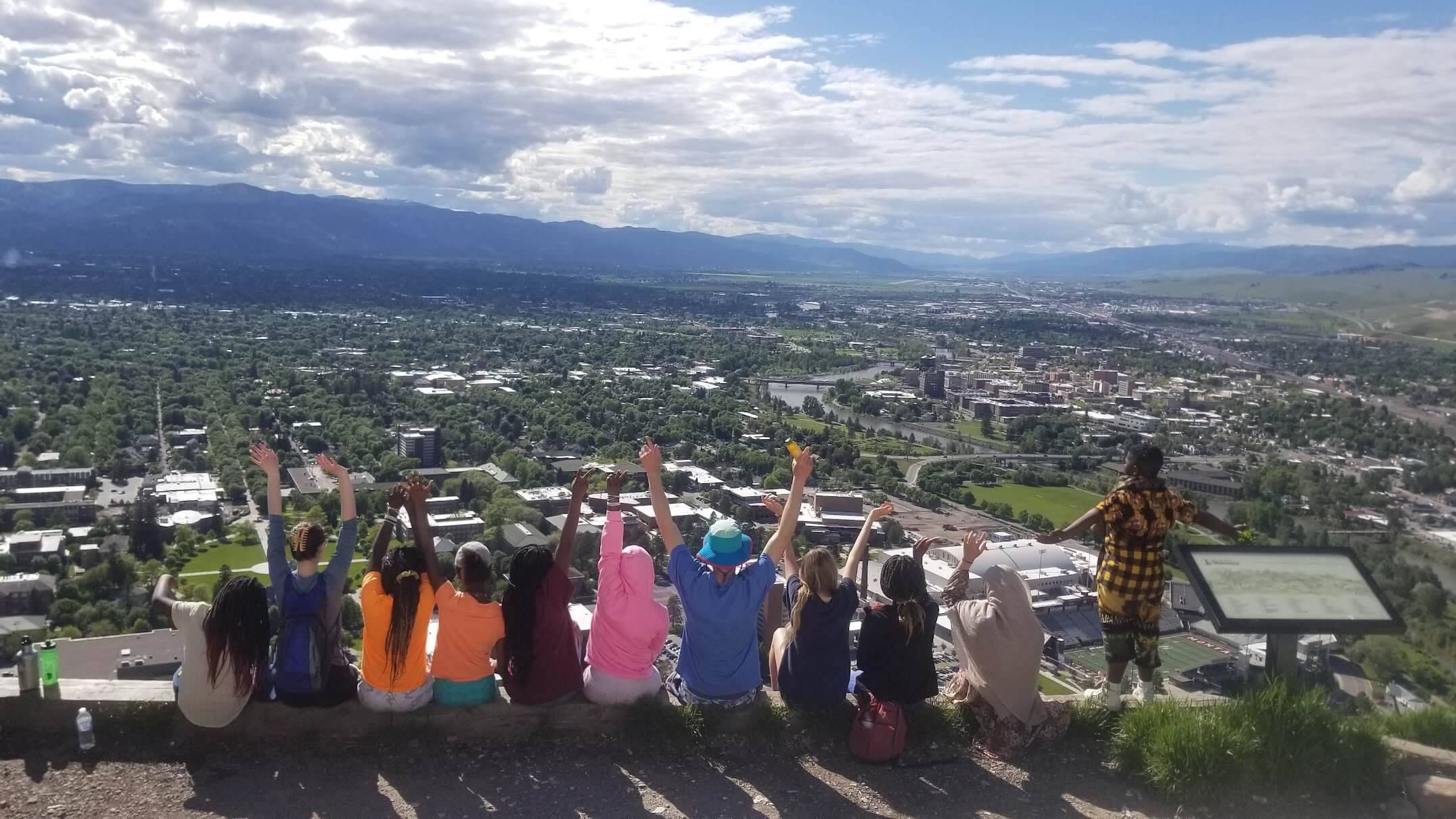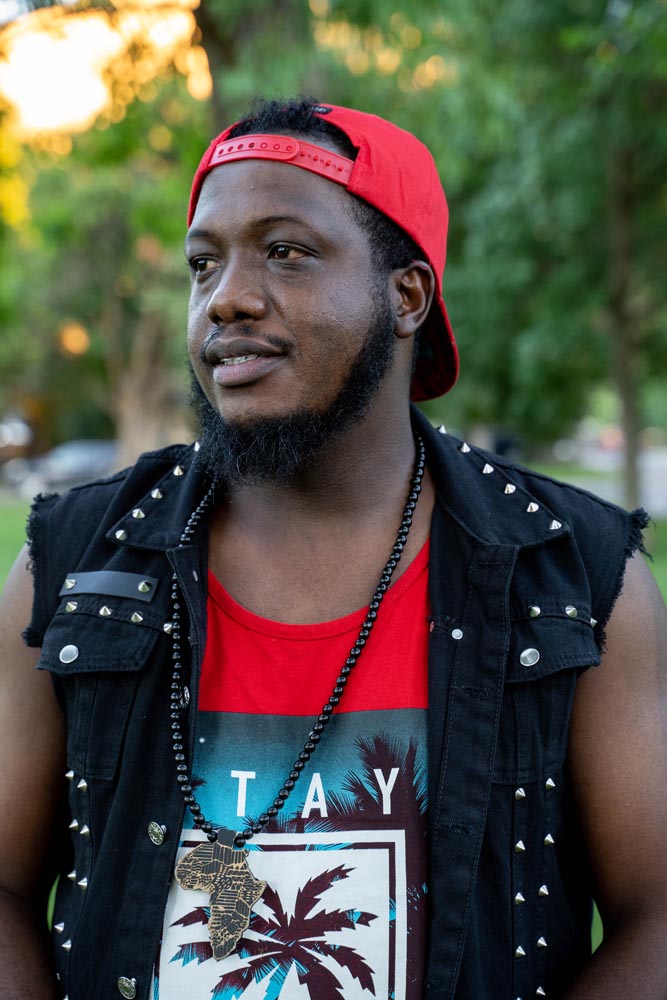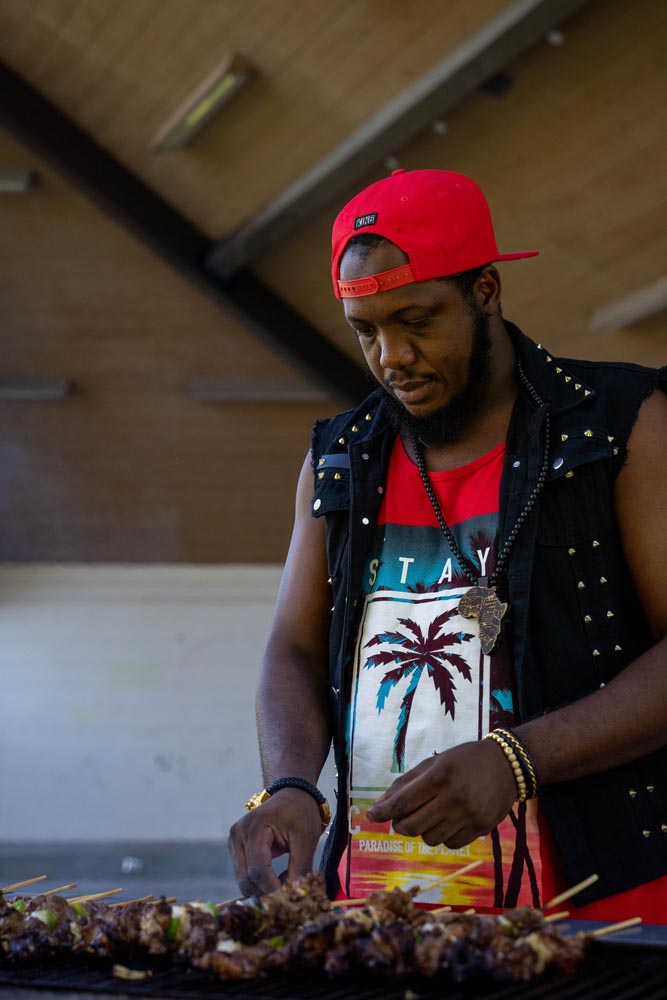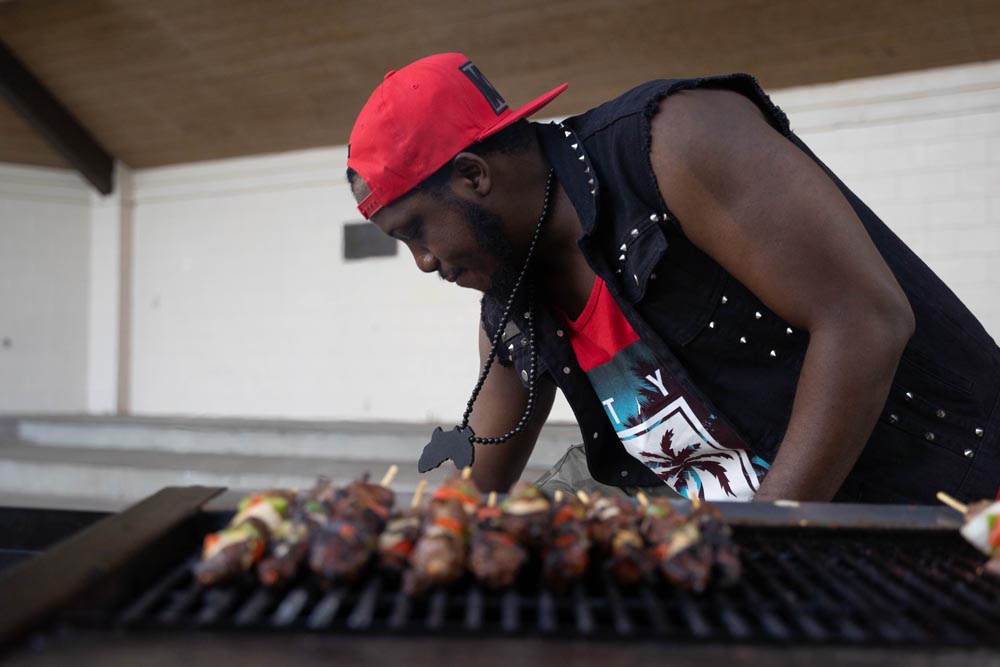
Stories of Home
Moses
Democratic Republic of Congo & Burundi

Moses is many things: a poet and an artist; a new husband and a soon-to-be father; a proud Congolese man who arrived in Missoula by way of Burundi; a survivor and a fighter.
But, perhaps above all, Moses identifies as an activist – wholly devoted to the cause of making sure people know the tragedy unfolding in the Democratic Republic of the Congo.
“The United States government should listen to the crisis of the Congo. There are so many people who have been born into war and whose children are being born into war,” he says.
Ever since he fled the Democratic Republic of the Congo at just 14-years-old, Moses has dedicated his life to raising awareness around the bloody conflict that has engulfed his home country for the better part of three decades.
According to the United Nations, more than 27 million people from the DRC experience food insecurity; nearly 75 percent of the population lives in poverty; over five million people have been internally displaced, run out of their homes by armed rebel groups but remaining within the borders of their home country; and another one-million-plus people have been displaced as refugees across the world.
Yet 2021 marked the lowest funded year for humanitarian relief efforts since the conflict began, reaching less than 40 percent of the $1.9 billion agencies believe is required in order to meet basic needs and provide basic protections to the millions of people at risk in the Democratic Republic of the Congo.
“Why is the world not talking about the war in Congo? I’m asking myself why Canada, Australia and the United States media can’t talk about it, yet it is so bad,” Moses says. “In Ukraine, you’d think it affected everyone all over the world. I don’t understand, is it because we are African?”
Moses comes from a strong legacy of activism in his family. His grandfather – who he ultimately saw be killed during the war – did this work, and Moses recalls being a young boy watching him fight against the corruption and injustice that already plagued the country.
Once his grandparents were killed, Moses fled the country, beginning his journey alone without telling anyone. He shares harrowing stories from this journey – kids and civilians ambushed by armed groups; days spent without food or water; witnessing violence and bloodshed as he ran for his life to Burundi.

Today, Moses knows there are many teenagers like him enduring great tragedy and trauma. He founded a small nonprofit intended to help children who have run away from the war, often to neighboring countries such as Uganda, Tanzania and Burundi. Kids receive support reading books and learn how to use photography as a way to process their experiences.
Moses uses his own poetry as a tool of healing, so he knows firsthand the power of storytelling and the arts in both creating awareness and supporting personal wellbeing. “I wish the future would happen the way I write it,” Moses says of his own poetry. He hopes to get poems, such as one he recently wrote called “The Heart,” published so that more people can begin to understand the situation in the Congo and the way it impacts the people who live there.
And he’s not just naming a problem, he’s offering solutions.
Moses wants to see increased attention from media organizations in the United States so that everyone can understand the scale of the devastation in the Congo. He wants the federal government to put its power behind international diplomacy to compel change, and he wants there to be rules about where powerful and wealthy Congolese people can spend their money since they are often the ones profiting abroad while causing the devastation of so many back home.
With the situation in the Congo growing increasingly dire, Moses has accepted that he might never be able to return to his beloved home country. So while he’s constantly trying to do what he can from afar for the Congo, he also knows he has to build his life here in Missoula, where he’s called home since 2018.
“When I arrived in Montana, the biggest thing I loved was the peace inside this place,” he says. “It feels so good to be in a place where you don’t hear the sound of firearms all the time, you can walk without any disturbances from anyone or anything. I was accepted by people who are willing to know what our state was back at home.”
There have been some funny new experiences, like the time someone suggested he try a hot dog – and he thought they were suggesting he eat a pup – or the first couple times he hopped on the bus and got so turned around because everything looked the same to him.
If he thinks too much about what he’s endured, feelings of fright and terror return. So he tries to spend most of his time focused on things that give him encouragement – like comedy or African music. He’s also constantly hustling to grow his nonprofit aspirations and get the word out about the Congo through poetry and social media so that people can know what’s happening.
But no matter where Moses goes or what he does during the day, the Congo – and the loved ones he left behind – are always on his mind.
“I wish to see some of the members in my family who I left and haven’t seen in quite some time, like my uncle who I haven’t seen for 20 years,” Moses says. “I wish one day to see them, and I also pray that one day the Congo will be peaceful.”
Story by Carly Graf. Photos by Madeline Jorden


Welcome. Celebrate. Share.

